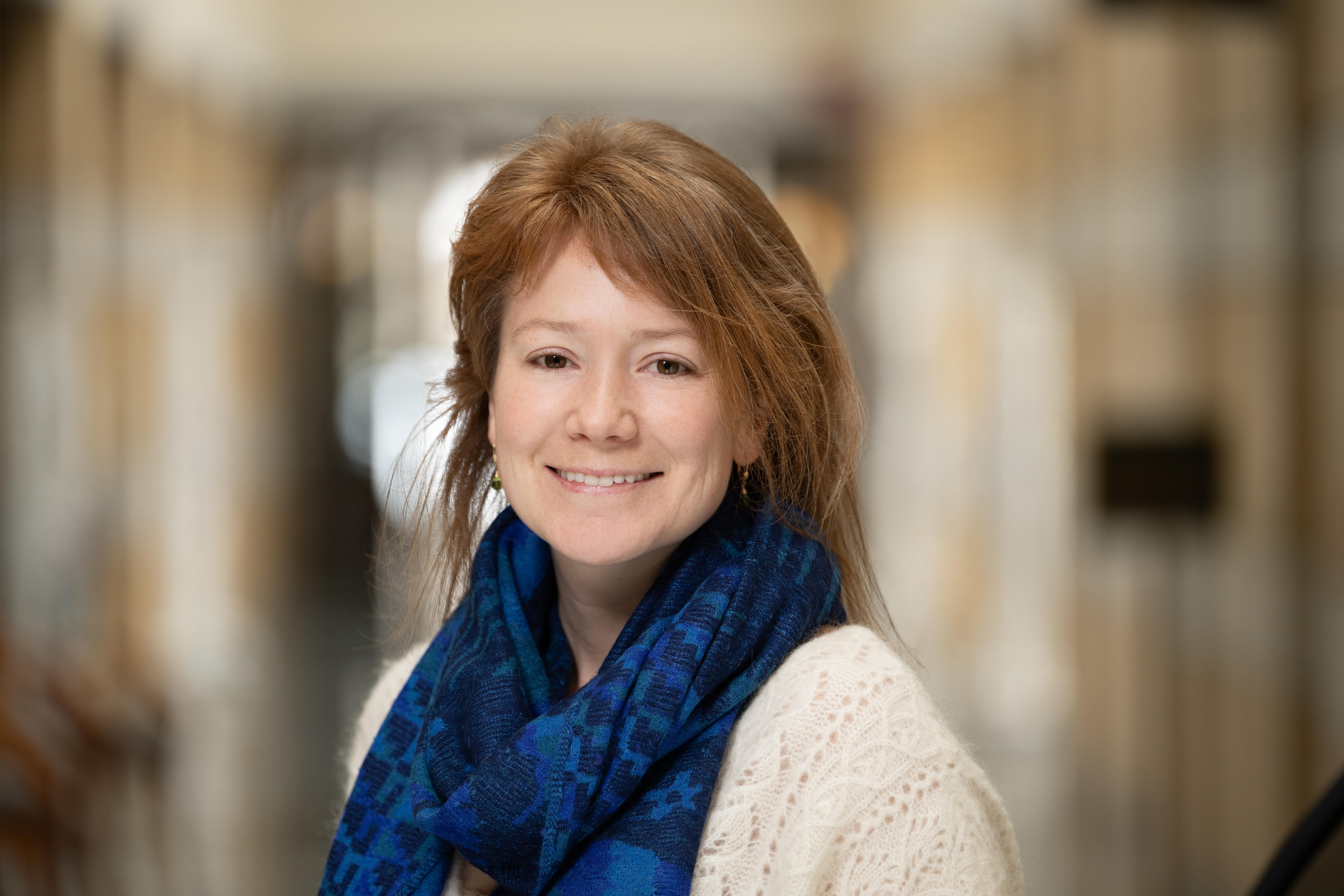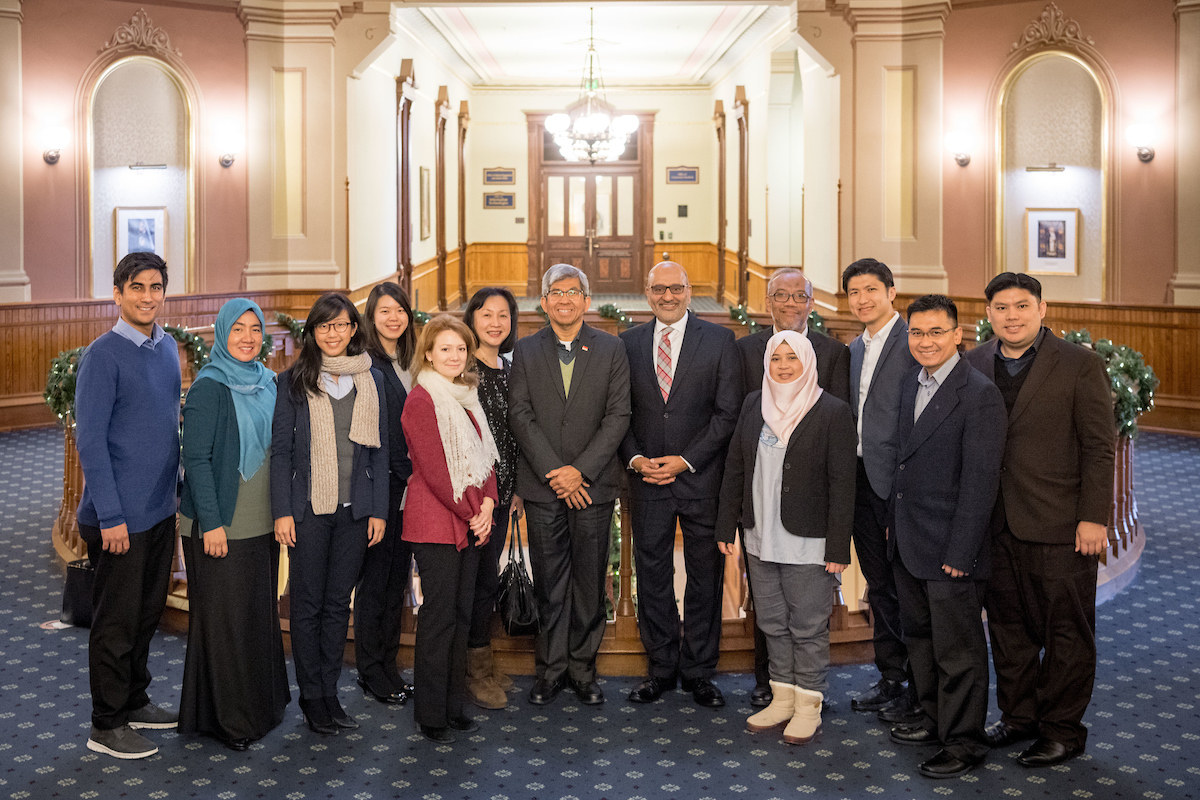
Imagine, for a moment, that you are a young Singaporean Muslim. Your dream is to serve your community as a spiritual leader, and so you leave your home to study at one of the world-renowned Islamic theological centers in the Middle East or North Africa. Three years later, steeped in your tradition, you return home as an imam or religious scholar.
Singapore is a multi-cultural society and, seeking your guidance as an internationally-educated spiritual leader, your fellow Muslim citizen of Singapore bring the following kinds of questions to you:
- What are the sharia guidelines for regulating interfaith weddings today?
- What are the ethics of assisted reproductive technologies in Islam?
- Can good Muslims participate in the religious festivals of their neighbors of other faiths?
These are constant and real concerns in a complex, religiously plural, scientifically forward-looking, and secular Singapore. Off the southern tip of the Malay peninsula, global financial powerhouse and city state Singapore has an active and integrated Muslim population of about 840,000, 15% of the population. While less buffeted by the questions of identity affecting Muslim populations in other states, Singaporean Muslims are nonetheless sensitive to hardening views on what constitutes Islamic tradition and practice. Young Muslims, recently returned from studies abroad, also bring home approaches and perspectives that might not be in accord with the cosmopolitan nature of the city state.
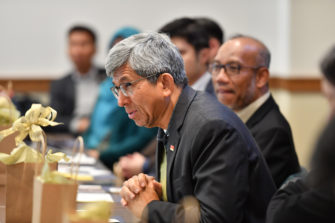
Recognizing the importance of developing local programs for the education of Muslims, especially for Singapore’s future Muslim religious leaders, an official Singaporean delegation visited a variety of institutions in North America last December. The inter-departmental ministerial delegation, headed by Dr. Yaacob Ibrahim, Minister for Communications and Information of Singapore as well as Minister-in-charge of Cyber Security and Minister-in-charge of Muslim Affairs, have traveled to many institutions around the world, learning from their experiences in religious education. Singapore envisages launching a homegrown Islamic College offering a degree program comprising courses in traditional Islamic sciences, enriched with modules on contemporary issues and professional skills to meet the needs of the Singapore Muslim community. The ministry and education authorities are exploring models for the design of such an institution.
Dr. Yaacob’s delegation visited the University of Notre Dame at the suggestion of CM Co-Director and Madrasa Discourses Primary Investigator Dr. Ebrahim Moosa. Interested in religiously-informed tertiary education, the delegation joined Dr. Moosa and others for a visit to the Dome with ND Vice President Michael Pippenger, a conversation on the Keough School of Global Affairs, a detailed presentation of the Madrasa Discourses curriculum, and a visit with Notre Dame students of all levels, from freshmen to PhDs.
Madrasa Discourses
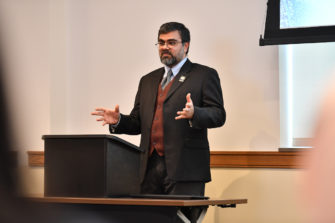
Tradition is complex and contested, began Mahan Mirza, introducing the Madrasa Discourses curriculum on the afternoon of the visit. In order to move forward in grappling with the questions of today, we must also look back and recognize the rich intellectual history of Islam as internally contested and deeply influenced by the philosophical currents of the age. Some of the tools Muslims need today, he explained, exist within parts of the Muslim tradition that have been neglected. For instance, the great theologian Abu Mansur al-Maturidi (d. 936) grounded his theology in a version of reason that was independent of revelation. The historian Ibn Khaldun (d. 1406), stressed that understanding history required the aid of philosophy. And, the renowned Abu Hamid al-Ghazali (d. 1111) placed an emphasis on logic and the centrality of lived conditions of human existence to the foundations of religious thought. Eliciting the resources within the Muslim tradition, Muslims can fruitfully engage modern thought in a way that is both faithful to the past and relevant in a new and changing world where scientific cosmologies and even newer philosophical worldviews reign.
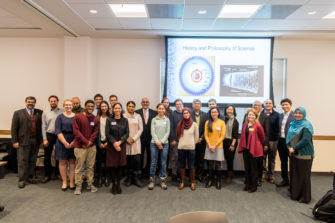
In sharing the goals and methodology of the Madrasa Discourses program, CM’s Ebrahim Moosa and Mahan Mirza sought to contribute to the broader conversation in which the program is embedded: updating and strengthening Muslim education to face the challenges of modernity. The Madrasa Discourses program provides continuing education for a handpicked group of young Muslim theologians from India and Pakistan. With a similar aim, the Ministerial delegation approaches this conversation largely to train Singapore’s future religious and spiritual leaders. Moosa, who has visited Singapore several times and taught members of the rising theological fraternity in that country, said the proposed educational program was an innovative move to adequately prepare the next generation of Singaporean Muslim theologians. It will make theological education more efficient and the outcomes can transform and impact the region, he added with optimism.
The ND Experience
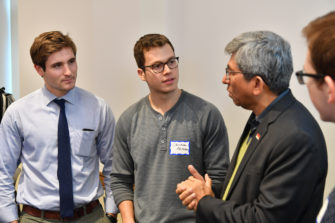
Before the Ministerial delegation embarked on their drive back to Chicago in light snow, the group also met a select number of Notre Dame students. Sitting together at the front of the room, undergraduate and graduate students from all fields of study responded to Minister Yaacob’s questions about their choice of university. Spirituality, many students noted, was important to them and hence they chose Notre Dame. Few Universities in the United States blend a top-tier rating in the sciences and humanities with an express commitment to religion. Religion can’t be set aside or siloed, echoed one Masters student of Global Affairs. It’s an integral part of the human experience.

